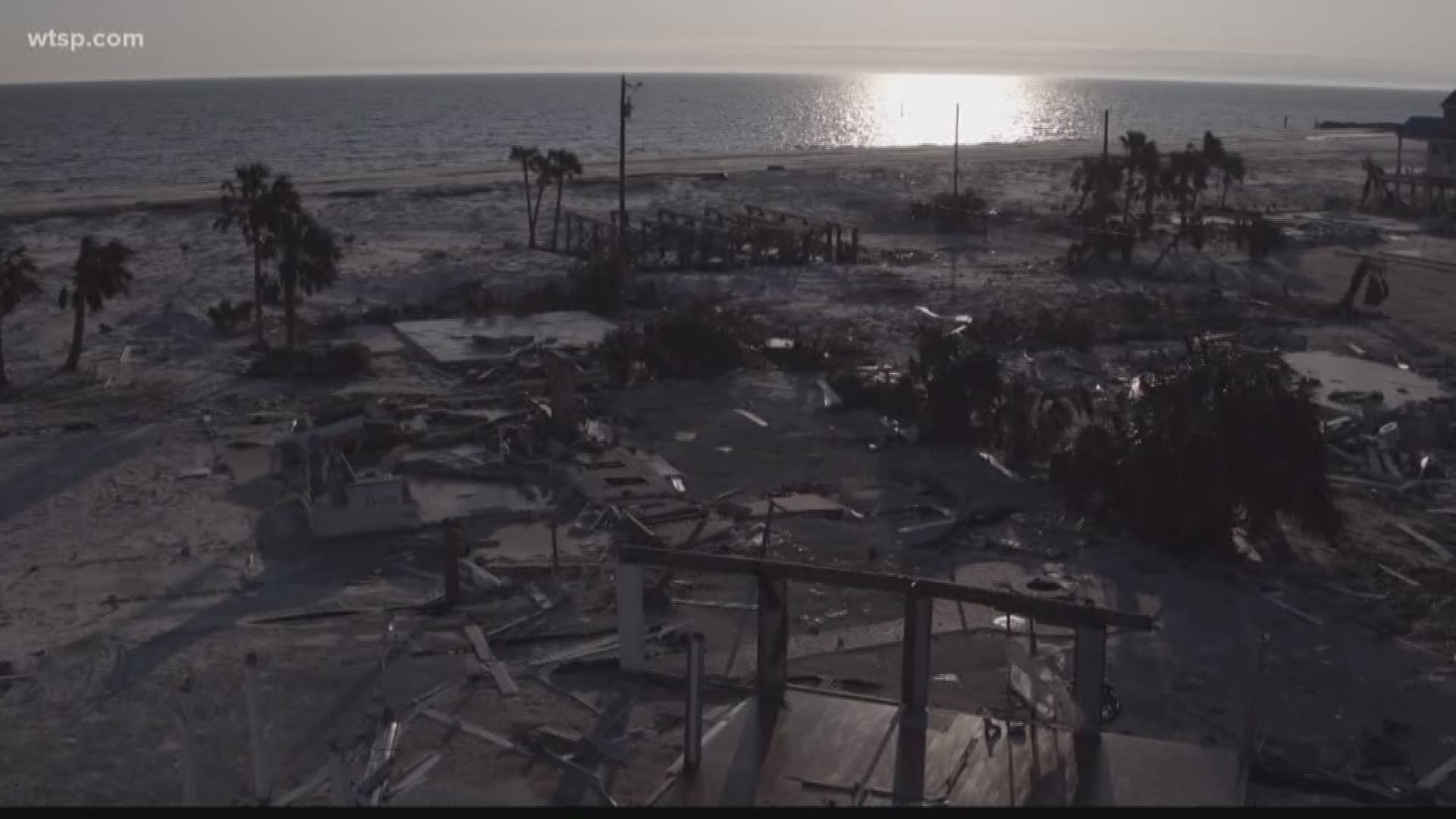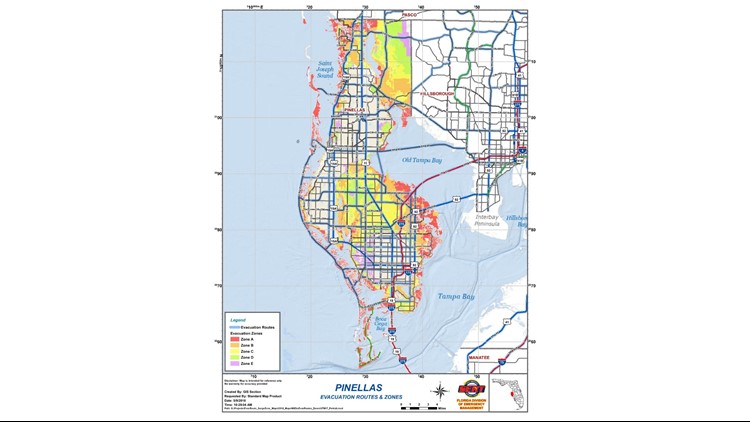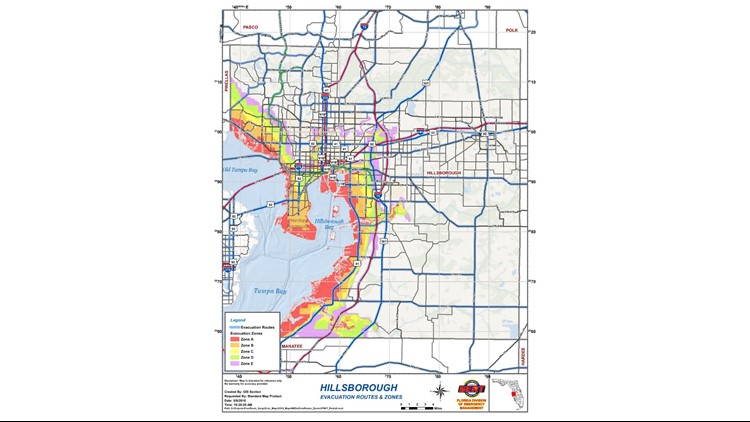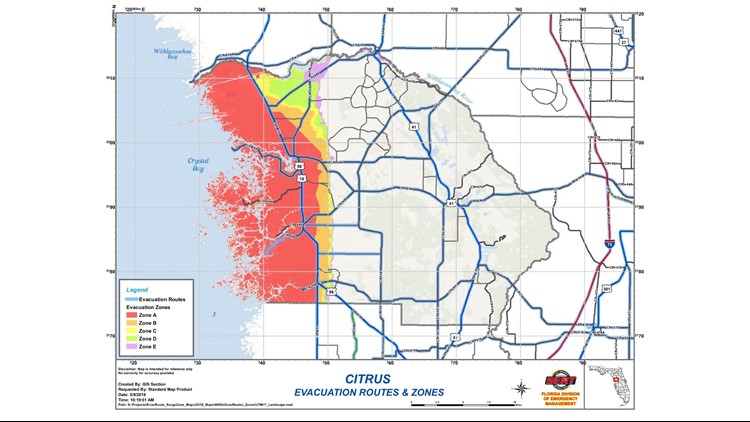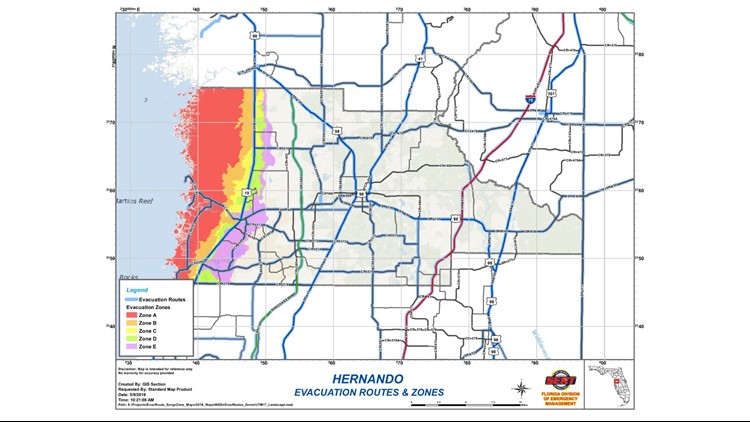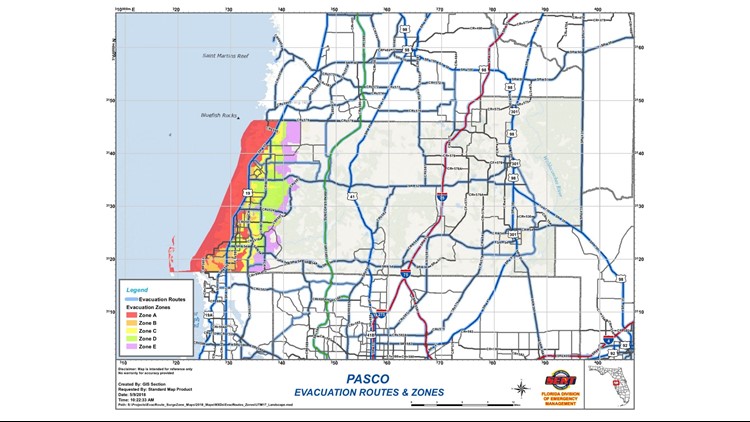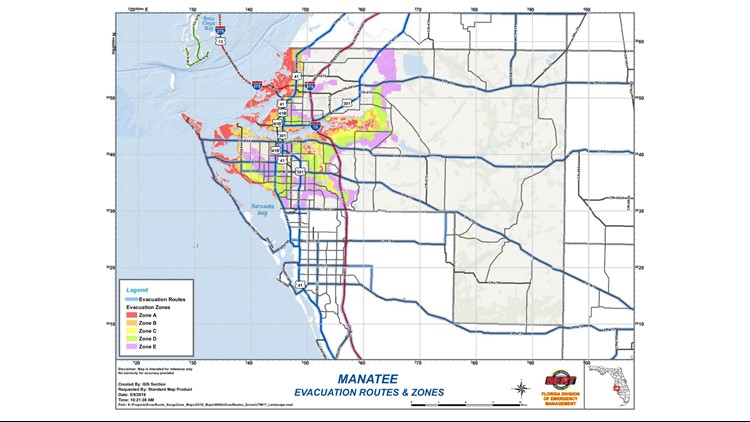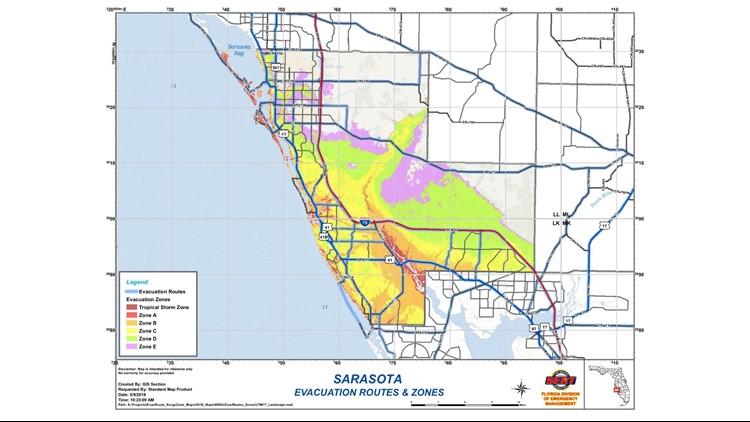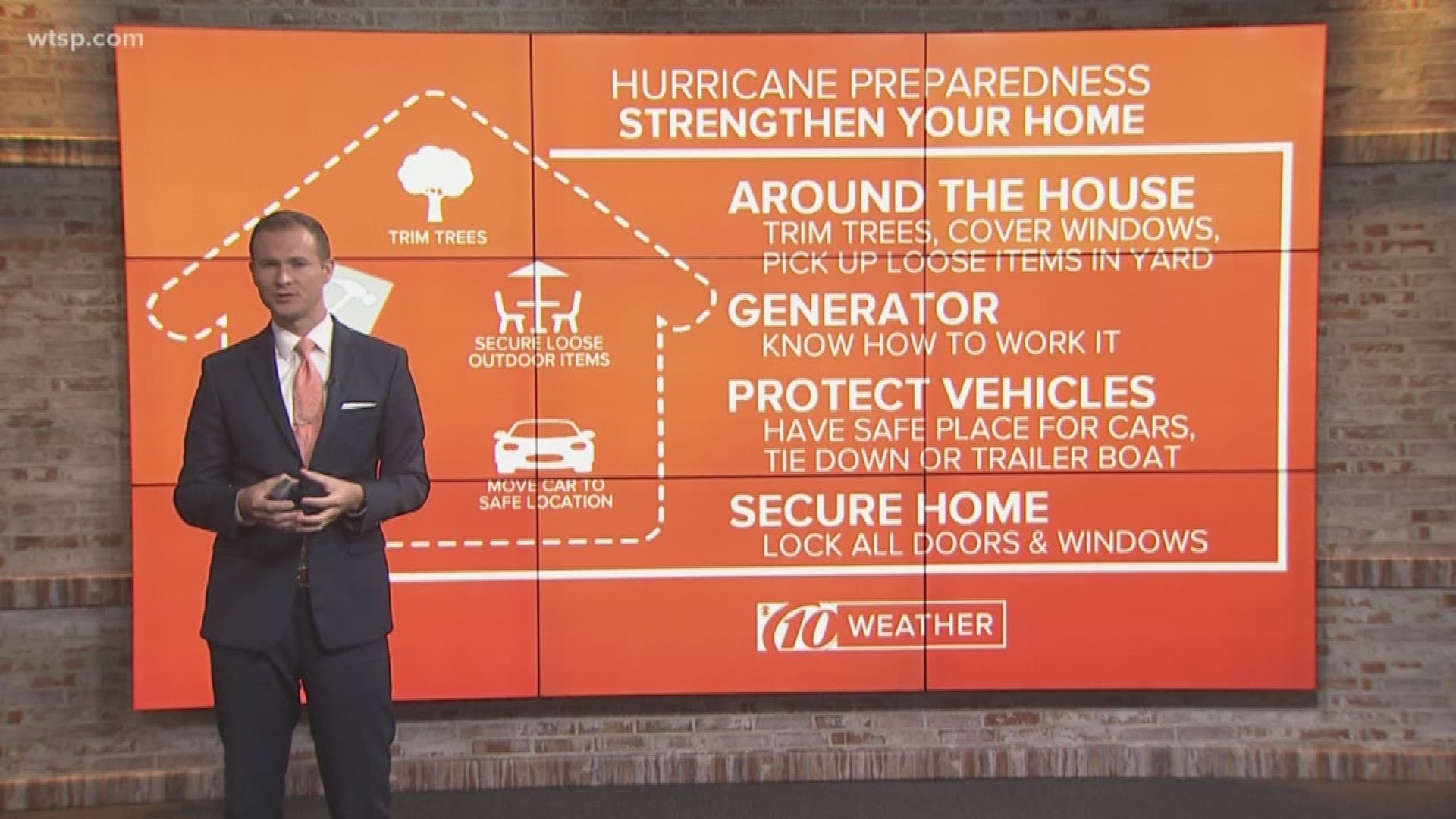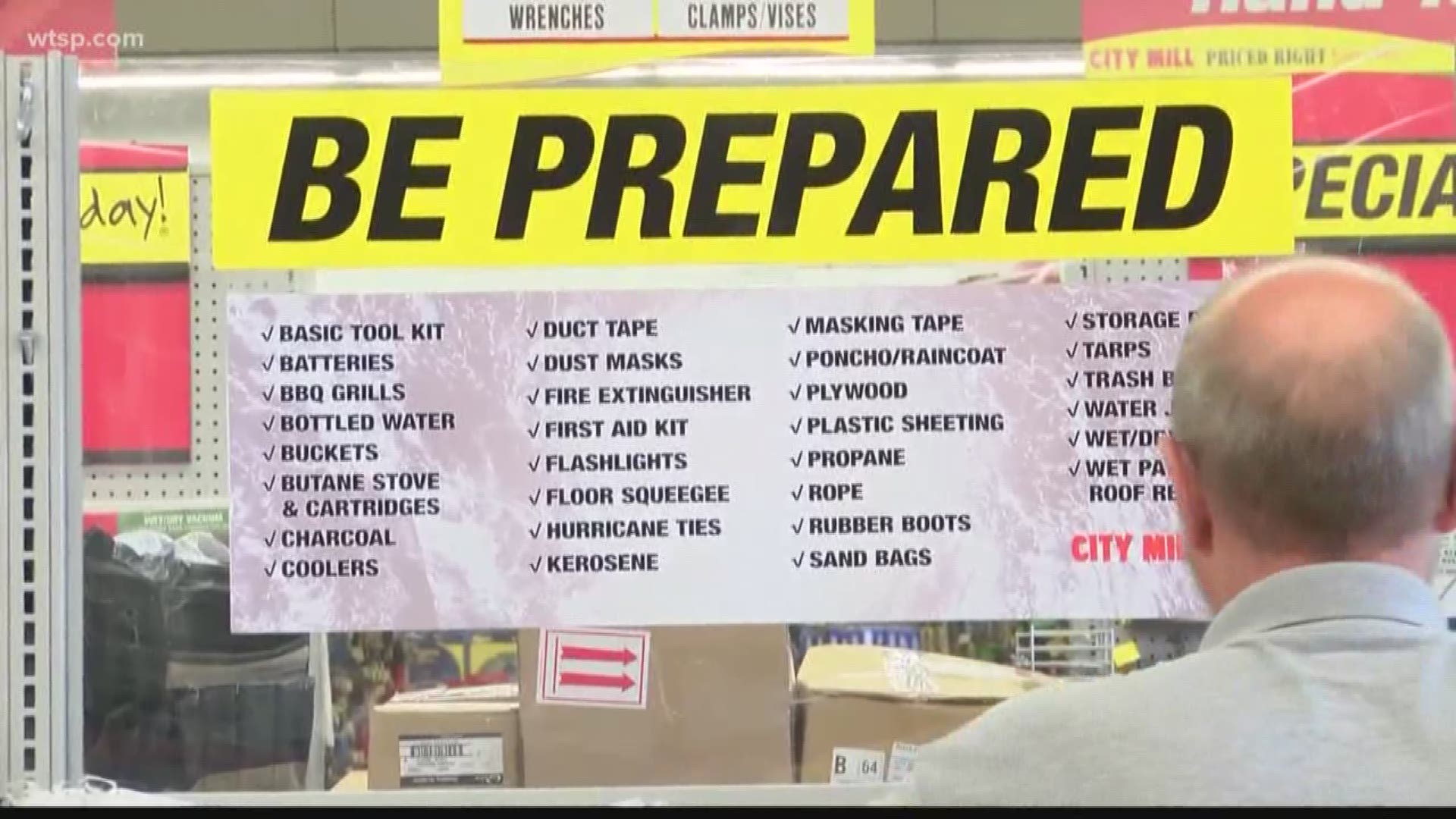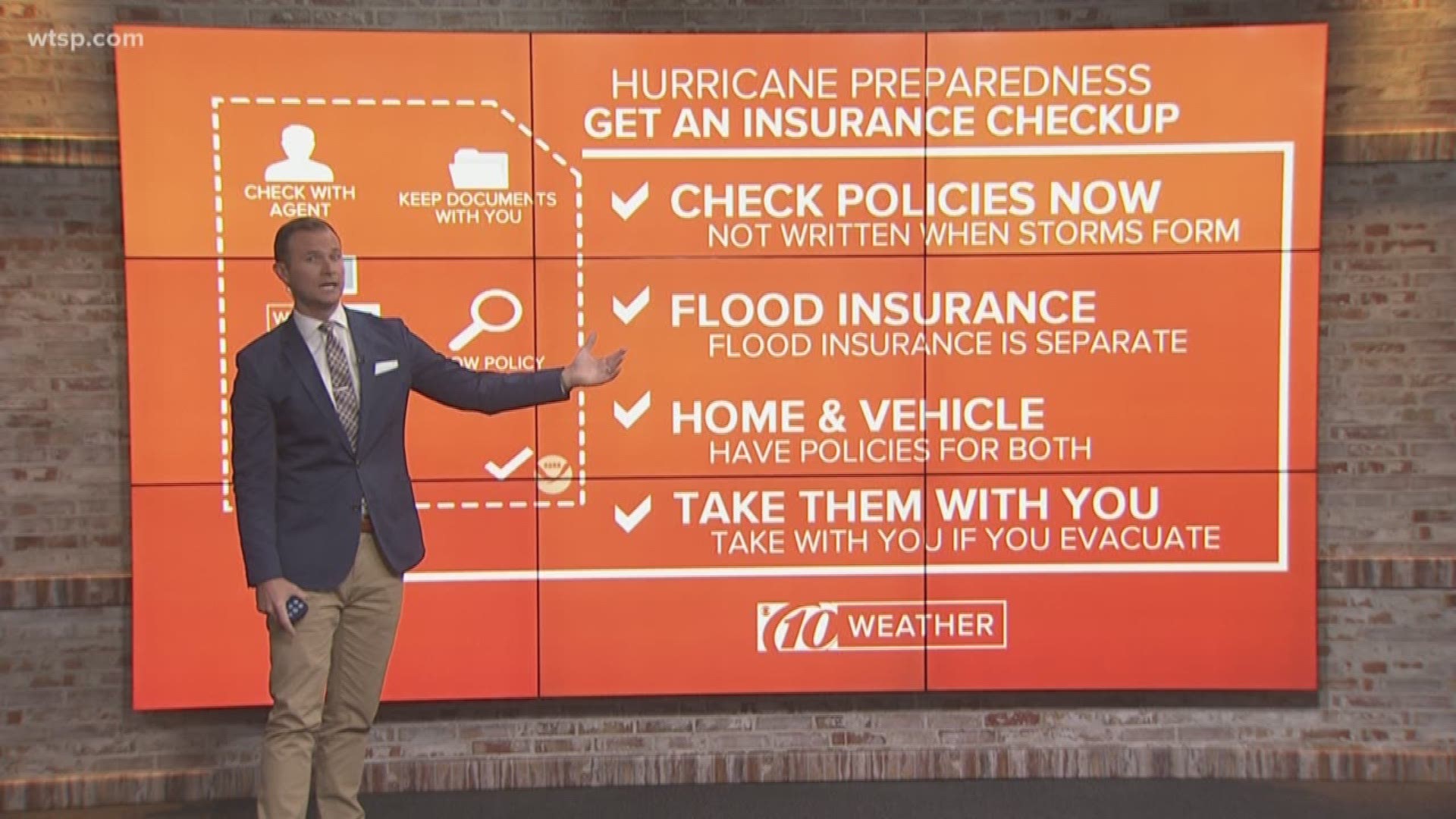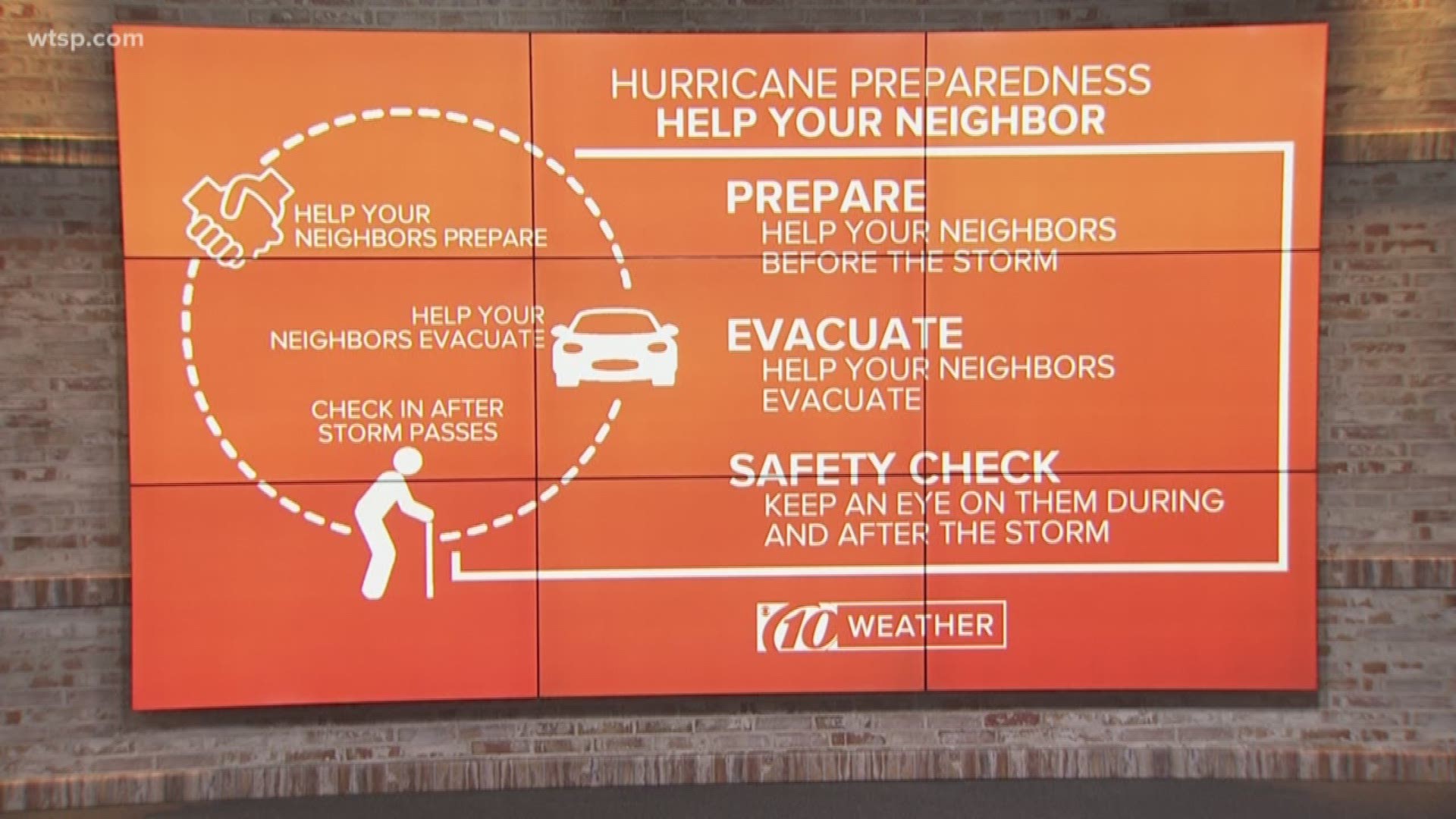As the 2019 Atlantic hurricane season starts next month, people who live near the coast should be prepared if a storm is on its way.
There are several things to consider like gathering supplies, determining your risk, figuring when it’s time to leave and more.
Stay informed: Download the free 10News app for breaking news and weather updates from the 10Weather team
Here are some questions to ask yourself as hurricane season runs from June 1 through Nov. 30.
What is my evacuation zone?
Visit the Florida Division of Emergency Management to see what zone you live in. When you hear evacuations ordered for zones A through E, you'll know whether it's time to go. Visit this link to see information for other states.
Tampa Bay-area evacuation zones
What should I put in my hurricane supply kit?
You'll want to have enough non-perishable food, medicines and water to last each person in your family for at least one week. Don't forget cash – ATMs won't work if the power goes out – and batteries for cell phones, radios and other devices.
It's important to plan ahead as grocery and supply stores will be in short supply in the days and hours leading up to a hurricane. The American Red Cross also has a printable hurricane safety checklist you can download here to prepare your family from danger.
Here are several items you’ll need:
- Water - at least 1 gallon daily per person for 3-7 days; also fill the bathtub and other containers; sports drinks are good to fend off dehydration
- Food - at least enough for 3-7 days; non-perishable packaged or canned food; juices; foods for infants or elderly family members; snack foods; food for special diets
- Non-electric can opener
- Cooking tools, fuel
- Paper plates and cups, plastic utensils
- Bedding: blankets, pillows, etc.
- Clothing
- Rain gear
- Sturdy shoes
- First aid kit, medicines, prescription drugs
- Toiletries, hygiene items, moisture wipes, dry shampoo
- Flashlight, batteries, lanterns
- Radio: Battery operated and NOAA weather radio
- Telephones: Fully charged cell phone with extra battery; chargers; traditional (not cordless) telephone set
- Cash (with some small bills) and credit cards: Banks and ATMs may not be available for extended periods
- Important documents: Place in a waterproof container or watertight resealable plastic bag: Should include insurance, medical records, bank account numbers, Social Security card, prescriptions, etc.
- Tools: Keep a set with you during the storm
- Gas: Fill up your vehicles several days before landfall is expected; Gas stations could lose power during a storm and supply trucks may not be able to reach the area
- Pet care items: Proper identification, immunization records, medications, ample supply of food and water; a carrier or cage; muzzle and/ or leash
- Bleach without lemon or any other additives
- Fire extinguisher
- Mosquito repellent
- Keys
- Toys, books and games for children
- Duct tape
- Cell phone charging stations -- locations where you can charge mobile devices
Is my stuff protected?
If something happens to your belongings and property, you'll want to land back on your feet as quickly as possible. Check through your renter or homeowner insurance documents.
Consider flood insurance, too. But remember: there usually is a 30-day waiting period for it to go into effect, and you don't want to get it after the storm.
What's a hurricane watch? What's a warning?
You'll have about 48 hours if a hurricane watch is issued for your area and even less time if a warning is issued – here's what they mean. That's not quite the time to get your supplies ready to go but the time to act and move if necessary.
►Make it easy to keep up-to-date with more stories like this. Download the 10News app now.
Have a news tip? Email tips@wtsp.com, or visit our Facebook page or Twitter feed.

